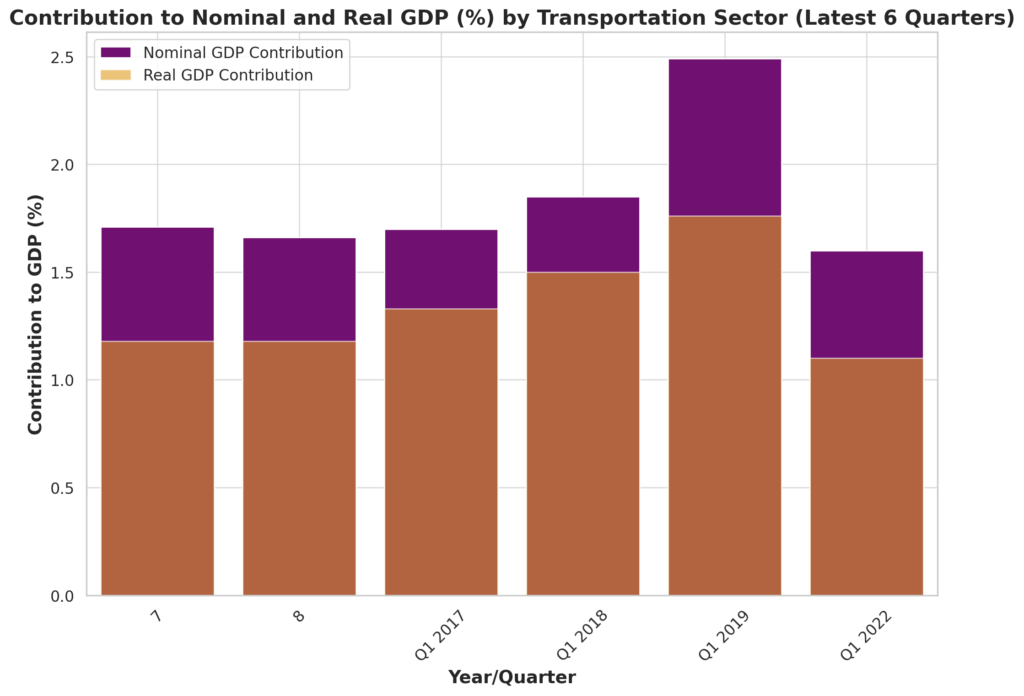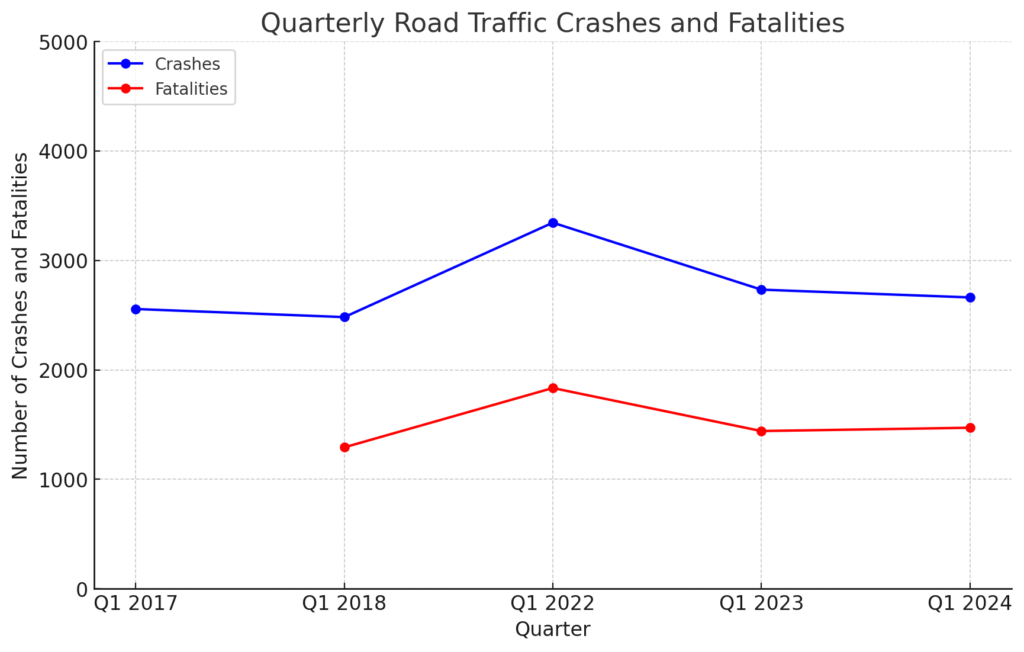According to a recent study by the Nigerian Bureau of Statistics, the transportation sector contributed 1.84% to Nigeria’s GDP in Q4 2023, highlighting its critical role in the country’s economy. However, fleet managers in Nigeria face a unique set of challenges that can significantly impact their operations and bottom line. From fuel wastage to regulatory compliance, these hurdles require innovative solutions and strategic thinking to overcome.
As Nigeria’s economy continues to grow and diversify, efficient fleet management becomes increasingly crucial for businesses across various sectors. This article explores the top 10 challenges faced by fleet managers in Nigeria and provides insights into how technology and strategic partnerships can help address these issues.

Fleet Management in Nigeria
Fleet management in Nigeria is a complex and demanding task, requiring a delicate balance of operational efficiency, cost control, and regulatory compliance. As the country’s economy expands and urbanization accelerates, the need for effective fleet management solutions has never been more pressing.
At SalComms Trackers, we’ve been at the forefront of the Nigerian fleet management industry for over twelve years, witnessing firsthand the evolving challenges faced by fleet managers. Our expertise in telematics systems has positioned us to offer unique insights and solutions tailored to the Nigerian market.
In this comprehensive guide, we’ll explore the top 10 challenges of fleet management in Nigeria and provide actionable strategies to overcome them. Whether you’re managing a small fleet of delivery vehicles or overseeing a large-scale logistics operation, this article will equip you with the knowledge and tools to optimize your fleet’s performance.
1. The Challenge of Fuel Wastage
Fuel wastage is a pervasive issue in Nigerian fleet management, significantly impacting operational costs and efficiency. According to industry reports, inefficient fuel management can lead to losses of up to 15% of a fleet’s total fuel budget.
Key factors contributing to fuel wastage include:
- Inefficient route planning
- Poor driving habits
- Vehicle idling
- Lack of regular maintenance
To address this challenge, fleet managers need to implement comprehensive fuel management strategies. This includes leveraging telematics solutions to monitor fuel consumption in real-time, optimize routes, and identify inefficient driving behaviors.
Learn more about our fuel management solutions
2. The Difficulty of Vehicle Acquisition
Acquiring and maintaining a fleet of vehicles in Nigeria presents unique challenges due to factors such as import restrictions, high costs, and limited local manufacturing capacity. This can make it difficult for fleet managers to expand or upgrade their fleets efficiently.
The perennial problem of inflation also makes it more difficult to do long term planning for acquisition due to the volatility of price and lending rates.
Strategies to overcome this challenge include:
- Exploring flexible and creative leasing options
- Implementing robust maintenance programs to extend vehicle lifespan
- Considering locally assembled vehicles when possible
- Utilizing fleet management software to optimize vehicle utilization
By adopting a strategic approach to vehicle acquisition and management, fleet operators can build a more resilient and cost-effective fleet.
3. Health & Safety Concerns in Fleet Management
Ensuring the health and safety of drivers and other road users is a critical concern for fleet managers in Nigeria. The country’s road safety statistics are sobering, with the Federal Road Safety Corps (FRSC) reporting over 5,000 road traffic fatalities in 2022.
Key health and safety challenges include:
- Poor road conditions
- Inadequate driver training
- Fatigue management
- Vehicle maintenance issues
To address these concerns, fleet managers should implement comprehensive safety programs that include regular driver training, health check-ups, and the use of telematics systems to monitor driver behavior and vehicle performance.


4. Regulatory Compliance for Fleet Managers
Navigating the complex regulatory landscape in Nigeria can be a significant challenge for fleet managers. From vehicle registration and licensing to environmental regulations and labor laws, staying compliant requires constant vigilance and adaptability.
Some key regulatory areas to focus on include:
- Vehicle inspection and maintenance standards
- Driver licensing and certification requirements
- Environmental emissions regulations
- Hours of service and rest period compliance
Implementing a robust fleet management system can help automate compliance tracking and reporting, reducing the risk of violations and associated penalties.
5. Administration & Data Handling
The sheer volume of data generated by modern fleet operations can be overwhelming. From vehicle maintenance records to driver performance metrics, effective data management is crucial for informed decision-making and operational efficiency.
Challenges in this area include:
- Data collection and storage
- Data analysis and reporting
- Integration of multiple data sources
- Ensuring data security and privacy
Investing in a comprehensive fleet management software solution can help streamline data handling processes and provide actionable insights for improved fleet performance.
6. Driver Shortages
Nigeria, like many countries, faces a growing shortage of qualified commercial drivers. This challenge can lead to increased operational costs, delays, and potential safety risks if fleets are forced to rely on less experienced drivers.
Strategies to address driver shortages include:
- Implementing attractive compensation and benefits packages
- Offering professional development and career advancement opportunities
- Improving working conditions and work-life balance
- Leveraging technology to enhance driver productivity and job satisfaction
By focusing on driver retention and recruitment, fleet managers can build a stable and skilled workforce to support their operations.


7. The Impact of Digitalization of Vehicles on Fleet Management
The increasing digitalization of vehicles presents both opportunities and challenges for fleet managers in Nigeria. While advanced telematics systems offer unprecedented insights into vehicle performance and driver behavior, they also require new skills and investments to fully leverage.
Key considerations in vehicle digitalization include:
- Integration of telematics systems with existing fleet management software
- Training staff to effectively use and interpret digital data
- Ensuring cybersecurity measures to protect sensitive vehicle and operational data
- Keeping pace with rapidly evolving technology
Embracing digitalization can lead to significant improvements in fleet efficiency and performance, but requires a strategic approach to implementation and ongoing management.
8. Fuel Costs: An Ever-Present Challenge
Fluctuating fuel prices and occasional scarcity pose significant challenges for fleet managers in Nigeria. According to recent data, fuel costs can account for up to 30% of a fleet’s total operating expenses.
To mitigate the impact of fuel costs, consider:
- Implementing fuel cards for better tracking and control
- Optimizing routes to reduce unnecessary mileage
- Training drivers in fuel-efficient driving techniques
- Exploring alternative fuel options where feasible
By adopting a multi-faceted approach to fuel management, fleet operators can significantly reduce their fuel-related expenses.
Here is a comparison of average fuel costs across different regions in Nigeria, highlighting potential savings through strategic fuel management:
| Region | Average Petrol Price (NGN/L) | Average Diesel Price (NGN/L) |
|---|---|---|
| North-Central | 632.75 | 1123.75 |
| North-East | 648.93 | 1055.57 |
| North-West | 677.67 | 1183.45 |
| South-East | 648.93 | 959.69 |
| South-South | 663.59 | 1055.57 |
| South-West | 623.12 | 1004.98 |
Fuel Price Disparities Across Regions
- The North-West region has the highest average petrol price at ₦677.67/L, while the South-West has the lowest at ₦623.12/L – a difference of over ₦50/L.
- For diesel, the North-West again has the highest average price at ₦1,183.45/L, while the South-East has the lowest at ₦959.69/L – a difference of over ₦200/L.
Potential Savings Through Strategic Fuel Management
- By sourcing fuel from the regions with the lowest prices, businesses and consumers could potentially save:
- Up to ₦54.55 per liter of petrol by purchasing in the South-West instead of the North-West.
- Up to ₦223.76 per liter of diesel by purchasing in the South-East instead of the North-West.
- By implementing a centralized fuel procurement strategy, your organization can leverage these regional price differences and achieve significant cost savings by sourcing from lower cost areas especially if you run a cross-country operation.
9. Environmental Controls and Their Effect on Fleet Management
As global awareness of environmental issues grows, Nigerian fleet managers must increasingly consider the environmental impact of their operations. This includes adhering to emissions standards and exploring more sustainable fleet options.
Key environmental considerations include:
- Compliance with local and international emissions regulations
- Adoption of cleaner fuel technologies
- Implementation of eco-driving programs
- Regular vehicle maintenance to ensure optimal performance and reduced emissions
By proactively addressing environmental concerns, fleet managers can not only ensure compliance but also potentially reduce costs through improved efficiency and positive brand perception.
10. The Rising Popularity of Electric Vehicles: A New Challenge for Fleet Managers
While the adoption of electric vehicles (EVs) in Nigeria is still in its early stages, forward-thinking fleet managers are beginning to consider their potential impact. The transition to EVs presents unique challenges, including:
- Limited charging infrastructure
- Higher upfront costs
- Range limitations
- New maintenance and repair considerations
However, EVs also offer potential benefits such as lower operating costs and reduced environmental impact. Fleet managers should start planning for the gradual integration of EVs into their fleets, considering factors such as route requirements, charging logistics, and total cost of ownership.
How Technology Can Help Overcome These Challenges
Embracing cutting-edge fleet management technology is crucial for overcoming the challenges faced by Nigerian fleet managers. Advanced telematics systems, GPS tracking, and fleet management software can provide real-time insights into vehicle performance, driver behavior, and operational efficiency.
Key benefits of technology adoption include:
- Improved route optimization
- Enhanced fuel management
- Better driver safety monitoring
- Streamlined maintenance scheduling
- More accurate data for decision-making
At SalComms Trackers, we offer a comprehensive suite of fleet management solutions tailored to the unique needs of the Nigerian market. Our technology helps fleet managers address these challenges head-on, driving operational efficiency and cost savings.
Strategic Fleet Partnerships for Growth
Forming strategic partnerships can be a game-changer for fleet managers looking to overcome industry challenges. Collaborating with technology providers, maintenance services, and even other fleet operators can lead to shared resources, knowledge exchange, and economies of scale.
Consider partnerships in areas such as:
- Shared maintenance facilities
- Joint driver training programs
- Collaborative technology investments
- Shared data insights for industry benchmarking
By leveraging the power of partnerships, you can access resources and expertise that might otherwise be out of reach, so that you can position your operations for sustainable growth.
Taking Your Fleet Management to the Next Level
As we’ve explored, fleet management in Nigeria presents a unique set of challenges. However, with the right strategies, technologies, and partnerships, these challenges can be transformed into opportunities for growth and optimization.
At SalComms Trackers, we’re committed to helping Nigerian fleet managers navigate these complexities and drive their operations to new heights of efficiency and profitability. Our deep industry expertise and cutting-edge solutions are designed to address the specific needs of the Nigerian market.
Ready to revolutionize your fleet management approach?